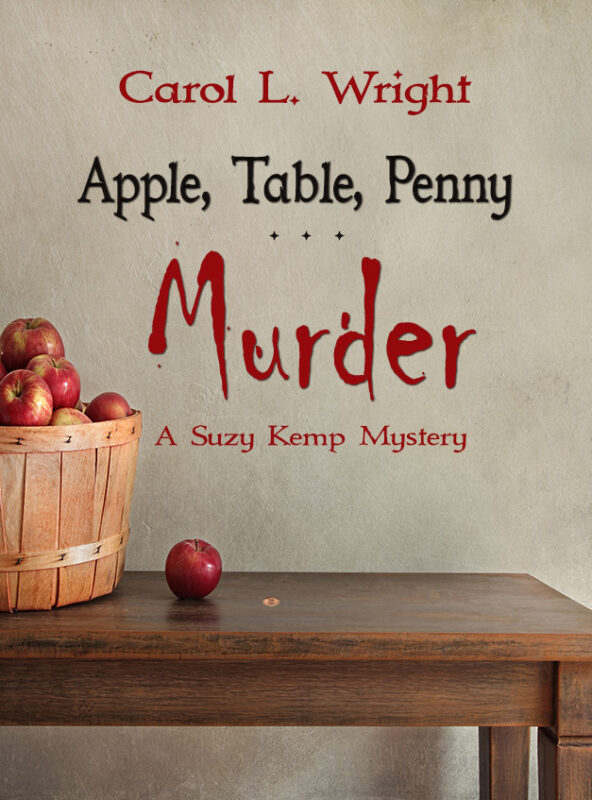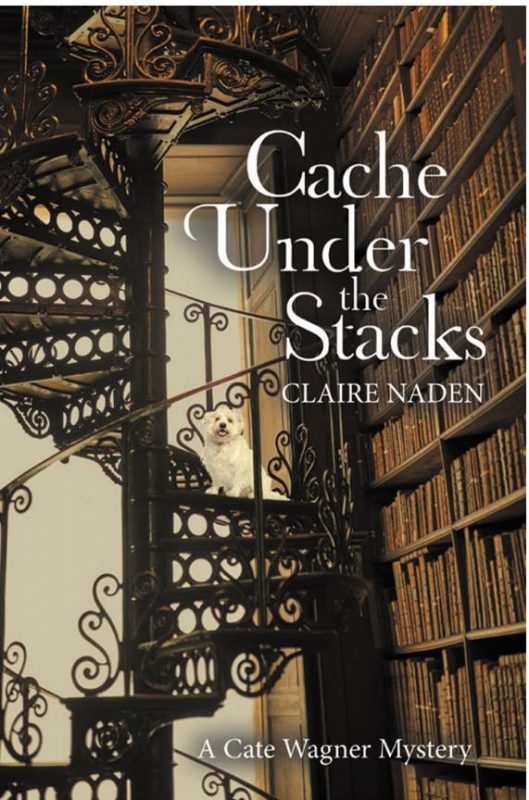Midnight Snack
October 30, 2025 by Dianna Sinovic in category Quill and Moss by Dianna Sinovic, Writing tagged as dark fiction, Halloween, short fiction, writing
At the chiming of eleven bells, the retreat’s evening session began. Squeezed around the table, six people scooted chairs until no one brushed up against anyone else. The room’s reddish glow came from a candelabra on a nearby shelf, and the air hung thick with cedar incense.

Jana coughed into her hand and took side glances at the five others. Duvan, whose laughter burst out at the oddest moments; Metrie, whose face was as pale as the ivory cloth that covered the table; Tartas, who kept shifting among her multiple forms so that Jana wasn’t exactly sure who she was at any moment, and two others, whose names and peculiarities she couldn’t recall.
“This meeting, on Allhallows Eve, marks the time of year when we can at last show our true faces,” Metrie intoned, her voice just above a whisper. Somewhere in the darkened room came the slow ticking of a clock. “Place both your hands on the table, and please remain silent.”
Palms down, Jana let her gaze rove, careful not to engage with anyone. She had heard that one of the five—four, if she didn’t count Metrie, the leader—was a transformed cryptid. More precisely, the Pocono Polecat. Research had pointed her to this Pennsylvania gathering, on this night, when transformers slipped however briefly into their original shape.
A tiny camera, attached as a bead to her necklace, would capture the change when it happened. She hoped. Then she’d have the proof needed for the article she was writing for The Cryptozoologist.
Metrie recited a prayer in an ancient language filled with hard glottal stops and velar clicks. A breath exhaled through the room, bringing with it a rank smell that wrinkled Jana’s nose.
Polecat.
The seat where the black-haired woman wrapped in a white shawl had been sitting was now filled with a human-sized black-furred mammal, a thin white stripe down its nose. It laid its two long, sharp claws on the table.
“Welcome, Shkak,” Metrie said, in English. Duvan exploded in laughter, and Tartas blinked through three form changes in as many seconds. The sixth person at the table, the one with close-cropped hair the color of burnt leaves, collapsed off their chair with a moan.
Jana felt her necklace, rubbing a finger next to the embedded camera, hoping it had recorded what she needed. In response, Shkak bared her teeth at Jana, who gasped. The stomach-turning stench overwhelmed the smoke of the cedar incense.
“You’re real,” Jana croaked, trying and failing to hold her breath. Duvan and Tartas fled the room.
“Of course, she’s real,” Metrie scoffed. She held a lace handkerchief over her nose. “Be careful what you ask for.”
A low-pitched rumble vibrated the table as Shkak stared at Jana. It had to be a growl. The polecat’s claws tore through the table covering, making long slashes.
Covering her mouth and nose with her hands, Jana dropped her gaze. “I’m so glad to meet you … as yourself.” Taking a breath and holding it, she dug out her cell phone, opened her camera app, and turned to Metrie. “Can you snap a photo of the two of us?”
Shkak rose to her full height.
Metrie smiled and put her hand out to take the phone. “Be glad to.” She added, “You do realize that polecats are omnivores, not herbivores, right?”
Read More of Dianna’s Stories
When the world was black and white but the circus was a colorful place by Jina Bacarr
October 11, 2025 by Jina Bacarr in category circus, Jina’s Book Chat, Writing tagged as cirucs, Paris, thriller, trapeze, writing, WW2
Hitler loved the circus.
According to classified reports uncovered after the war, the Fuehrer would sit in the front row of the circus and cheer on the performers he perceived to be ‘working class folks’ putting their lives on the line.
He loved the ‘woman in danger’ element in the acts, as my heroine Lia di Montieri discovers when she appears in a circus in Germany in the 1930s. I shan’t spoil the surprise, but we follow Lia’s career, her heartbreak over losing her baby, and how she makes a daring leap to join the Resistance to save Jewish children.
I’ve always been fascinated by circuses since I was a little girl. Especially the trapeze. We had a swing set in the backyard when I was growing up and I’d try every crazy trick I could think of, pretending I was flying under the big top, that I was ‘an angel without wings’ until one day the swing broke. Then we moved. As we did a lot in those days.
And so ended my circus dreams.
Finally, I can fly again! In my Boldwood Books upcoming WW2 novel about Occupied Paris and the circus.
‘The Stolen Children of War’ is…
The heartbreaking story of Lia di Montieri, Queen of the Flying Trapeze, who loses her own baby and risks her life to save innocent children from the Gestapo.
An adorable baby elephant named Bebe.
And lurking in the background is a serial killer preying on circus queens who threatens to destory what Lia holds most dear.
I wanted to write a story about circuses with a twist — there’s danger under the big top at every performance… lions, tigers… knife throwers… high wire walkers, trapeze artistes flying 100 mph from the flybar to the catcher, but what if there was also a killer watching their every move, ready to strike?
You’ll find all that and more at Le Cirque Casini!
It’s a psycological thriller with a mad doctor serial killer, beautiful circus queens in danger, heroes willing to die to protect them, baby animal ‘cuteness’, and ‘stolen children’ who will steal your heart.
Step right up, ladies and gents, and let’s go to the circus!
Now on NetGalley for all you book bloggers and reviewers.

My own private war to write ‘The Stolen Children of War’ by Jina Bacarr
September 11, 2025 by Jina Bacarr in category circus, Jina’s Book Chat, Writing tagged as children, circus, France, Paris, writing, WW2
War is hell.
Writing can also exact a toll on you that’s hard to come back from. I don’t propose to compare the valiant efforts of our soldiers, amazing servicemen and women, to me sitting safe behind a computer and writing about war. Not at all. I never served in combat, but I did counsel men who did (this was before women were allowed to fight in combat) and I heard the stories late at night sitting around a big, ole aluminum coffee pot in the US Army Service Club or playing pool with the men. We had a lot of soldiers passing through on their way ‘back home’ who felt more comfortable talking to me about their experiences than their families.
I was so young… and not a trained counselor or psychologist. But I did have one thing: I’m a good listener. Something taught to me by the nuns, especially the wise and round-faced Sister Mary Celestine at St Peter’s. I learned a lot from these Army and Air Force soldiers about brotherhood and loyalty and being ‘blooded’ and that unbreakable bond these men had with their units. I envied that. I wondered how we women would fare in such tense situations under fire.

Maybe that’s why I’m drawn to write about women in war.
My last several books are about Paris during the Occupation by the Nazis and the brave women who fought in the Resistance even as they fell in love and raised children. But writing about such intense times does take a toll on you. Especially when you’re fighting your own pain from an accident and struggling to make a deadline. (I thank God for my fabulous editor Isobel who was with me during this time and never gave up on me.)
Then I remember the sacrifice made by the women and men fighting the Nazis. My God, would I have had the courage to do as they did? I like to think I could and every day I strive to do what I can to help others… whether it’s at the market and someone needs help, or a nervous, new receptionist at my doctor’s office starting her first job.
The world is a scary place.
I also give thanks every day for what I have. Shelter, food, my treasured books I’ve collected since I was a little girl. And the Internet. Which allows me to share my heartfelt stories with you.
So, here we are… the hot days are slowly giving way to cooler temperatures. And with the advent of Fall, I’m so excited to announce my next Paris WW2 book, The Stolen Children of War.
I’m so thrilled with this fabulous cover.
It’s so circus-y!
That’s Lia, my heroine. A trapeze artist and trick rider since she was a kid.
The two children she saves will steal your heart as they did mine!
There’s also a stolen baby, handsome heroes, and an adorable baby elephant.
And a mystery, too… a madman threatening circus queens….
It’s a glorious ride of heart, passion, and razzle dazzle under the big top!
Can’t wait to introduce you to the world of circus during the Occupation of Paris 1943 when the children needed the joy of circus more than ever!
Out 10th November https://mybook.to/ChildrenOfWar
0 0 Read moreAre You Contaminated? by Kitty Bucholtz
September 9, 2025 by Kitty Bucholtz in category It's Worth It by Kitty Bucholtz, Writing tagged as community, encouragement, Encouraging Words, Kitty Bucholtz, writing
This weekend I saw some friends who moved away five years ago. What a wonderful surprise! At church, one of the pastors asked them what it was like to visit after so long, and one friend said something that made me laugh.
He said, Coming to this church, you get contaminated. People are so friendly and loving and kind, it brings out those traits in you. Then we all learn and grow together.
What a great way to look at it! Getting contaminated, but in a good way! It made me think of us. Outside of church, I’ve never known such an encouraging, helpful group of people like writers. No matter what’s happening, outside or inside our community, we end up coming together and helping each other through.
I want you to just sit in that for a moment. Think of all the writers who have encouraged you or taught you or held you together when it seemed things were falling apart. Think of all the times you’ve done that for others. This kind of contamination is our super power!
Let’s never forget it. Keeping up this strength individually and as a community is so worth it. 🥰
0 0 Read moreRoadwork
August 30, 2025 by Dianna Sinovic in category Columns, Quill and Moss by Dianna Sinovic, Writing tagged as relationships, short fiction, vacations, writing
Carrie’s SUV coasted to a stop along I-78, the rest of the weekend morning traffic zooming past, hurrying on their way to Dorney Park or the Poconos farther on. The dashboard lights flashed a warning, but she already knew the problem.

“What did the mechanic say about the oil pressure?” She grabbed her phone to call for a tow truck, but first frowned at Hugh. He glanced away and shrugged.
“Maybe a leak.”
“Maybe?” She shot him a glare then spoke to the Triple A contact, who assured her someone would be there within a half hour. A semi passed the vehicle at seventy, rocking the SUV in its wake.
“And did he fix it?”
Hugh did what he usually did when confronted with an example of his failure to carry through. He turned the tables back onto the confronter.
“You could have checked it yourself.”
Five years. Their nickel anniversary. A planned weekend getaway lay two hours north and west, at a lakefront Airbnb. Which now looked like a long shot, given the dashboard oil light and a thirty-minute wait for a tow. And then probably pricey repairs.
Three of those years had been a joy. The last two, not so much. Yet, altogether a major improvement over her ex, who had kept his cheating ways so hidden, she’d felt like the ultimate stooge when she finally learned the truth.
Carrie chose a smile over the irritated sigh that threatened to burst out. “I’m looking forward to our mini-vacay, hon. It doesn’t do any good to point fingers at this point.” Her phone pinged. The tow driver. “Fifteen minutes, he says.”
In truth, she wasn’t excited about the end-of-summer weekend ahead. She’d be back in front of a classroom of seventh graders in just a few days, and had suggested the trip as a way to glue the fractures threatening to cleave their relationship. She didn’t much care for sitting at the edge of a lake, but Hugh fished, and the rental included a dock and a small boat. Her hope lay in what happened between them when he wasn’t dangling his line in the water. Or staring into his laptop.
The growl of a 500-horsepower engine edged up beside the SUV, and then the flatbed truck pulled onto the shoulder in front of them.
Carrie met the driver between the vehicles to confirm the tow details. Hugh emerged from the passenger side and hung back, hands in his shorts pockets. If he spoke, she didn’t catch it over the rush of the highway traffic only a few feet away. Exhaust fumes eddied around them.
She moved to the far edge of the shoulder, and Hugh followed, as the driver readied to position the SUV on the flatbed.
“Allentown,” Carrie said, raising her voice over the traffic noise. “It’s this next exit. There’s a service station that can take a look.” The morning sun beat down on them, waves of absorbed heat flowing up from the concrete. She pulled her sleeveless tee away from her back, damp with sweat. “We’ll be on our way by noon, maybe.”
Why did she always feel the need to be upbeat around Hugh? She was like a defective tire jack, continually boosting up the car of their relationship but never quite able to get the wheel off the ground. Maybe it was time to fold up the jack and let it go.
In the cab of the tow truck, Carrie let Hugh ride next to the driver and she took the window seat. She lowered her window to escape the stifling odor of cigarette smoke.
“Where you headed?” the driver said, putting the truck into gear.
Carrie prepared to give a brief summary of their weekend plans, but Hugh answered first, a surprise.
“We’ve rented a place on a lake,” he said, a hint of eagerness in his tone. “Good fishing. Good weather, we hope. About two hours from here.”
He reached over and squeezed her hand, a second surprise.
When had he last done that?
“Yep,” the driver said. He switched on his signal to exit the highway. “Looks like a fine couple days for you. The station’ll get you squared away. Don’t you worry.”
Carrie squeezed Hugh’s hand back.
The trip looked better already.
Dianna’s Books
Affiliate Links
A Slice of Orange is an affiliate with some of the booksellers listed on this website, including Barnes & Nobel, Books A Million, iBooks, Kobo, and Smashwords. This means A Slice of Orange may earn a small advertising fee from sales made through the links used on this website. There are reminders of these affiliate links on the pages for individual books.
Search A Slice of Orange
Find a Column
Archives
Featured Books
APPLE, TABLE, PENNY . . . MURDER
How can you explain a disappearance when everyone denies it happened?
More info →NOT YOU AGAIN
Four blind dates in five days. I can’t believe I agreed to this.
More info →CACHE UNDER THE STACKS
Bungalow Books comes with more than Cate Wagner bargained for.
More info →LILIANA’S LETTER
Hired to help an heiress snare a titled husband, a down-on-her-luck lady dodges her own shadowy past and the titled Lord determined to uncover it.
More info →THE GOOD GIRL PART ONE
Gabriella Townsend is by all definition a "Good Girl." Her life is about to change.
More info →Newsletter
Contributing Authors
Search A Slice of Orange
Find a Column
Archives
Authors in the Bookstore
- A. E. Decker
- A. J. Scudiere
- A.J. Sidransky
- A.M. Roark
- Abby Collette
- Alanna Lucus
- Albert Marrin
- Alice Duncan
- Alina K. Field
- Alison Green Myers
- Andi Lawrencovna
- Andrew C Raiford
- Angela Pryce
- Aviva Vaughn
- Barbara Ankrum
- Bethlehem Writers Group, LLC
- Carol L. Wright
- Celeste Barclay
- Christina Alexandra
- Christopher D. Ochs
- Claire Davon
- Claire Naden
- Courtnee Turner Hoyle
- Courtney Annicchiarico
- D. Lieber
- Daniel V. Meier Jr.
- Debra Dixon
- Debra H. Goldstein
- Debra Holland
- Dee Ann Palmer
- Denise M. Colby
- Diane Benefiel
- Diane Sismour
- Dianna Sinovic
- DT Krippene
- E.B. Dawson
- Emilie Dallaire
- Emily Brightwell
- Emily PW Murphy
- Fae Rowen
- Faith L. Justice
- Frances Amati
- Geralyn Corcillo
- Glynnis Campbell
- Greg Jolley
- H. O. Charles
- Jaclyn Roché
- Jacqueline Diamond
- Janet Lynn and Will Zeilinger
- Jaya Mehta
- Jeannine Atkins
- Jeff Baird
- Jenna Barwin
- Jenne Kern
- Jennifer D. Bokal
- Jennifer Lyon
- Jerome W. McFadden
- Jill Piscitello
- Jina Bacarr
- Jo A. Hiestand
- Jodi Bogert
- Jolina Petersheim
- Jonathan Maberry
- Joy Allyson
- Judy Duarte
- Justin Murphy
- Justine Davis
- Kat Martin
- Kidd Wadsworth
- Kitty Bucholtz
- Kristy Tate
- Larry Deibert
- Larry Hamilton
- Laura Drake
- Laurie Stevens
- Leslie Knowles
- Li-Ying Lundquist
- Linda Carroll-Bradd
- Linda Lappin
- Linda McLaughlin
- Linda O. Johnston
- Lisa Preston
- Lolo Paige
- Loran Holt
- Lynette M. Burrows
- Lyssa Kay Adams
- Madeline Ash
- Margarita Engle
- Marguerite Quantaine
- Marianne H. Donley
- Mary Castillo
- Maureen Klovers
- Megan Haskell
- Melanie Waterbury
- Melisa Rivero
- Melissa Chambers
- Melodie Winawer
- Meriam Wilhelm
- Mikel J. Wilson
- Mindy Neff
- Monica McCabe
- Nancy Brashear
- Neetu Malik
- Nikki Prince
- Once Upon Anthologies
- Paula Gail Benson
- Penny Reid
- Peter J Barbour
- Priscilla Oliveras
- R. H. Kohno
- Rachel Hailey
- Ralph Hieb
- Ramcy Diek
- Ransom Stephens
- Rebecca Forster
- Renae Wrich
- Roxy Matthews
- Ryder Hunte Clancy
- Sally Paradysz
- Sheila Colón-Bagley
- Simone de Muñoz
- Sophie Barnes
- Susan Kaye Quinn
- Susan Lynn Meyer
- Susan Squires
- T. D. Fox
- Tara C. Allred
- Tara Lain
- Tari Lynn Jewett
- Terri Osburn
- Tracy Reed
- Vera Jane Cook
- Vicki Crum
- Writing Something Romantic
Affiliate Links
A Slice of Orange is an affiliate with some of the booksellers listed on this website, including Barnes & Nobel, Books A Million, iBooks, Kobo, and Smashwords. This means A Slice of Orange may earn a small advertising fee from sales made through the links used on this website. There are reminders of these affiliate links on the pages for individual books.























































